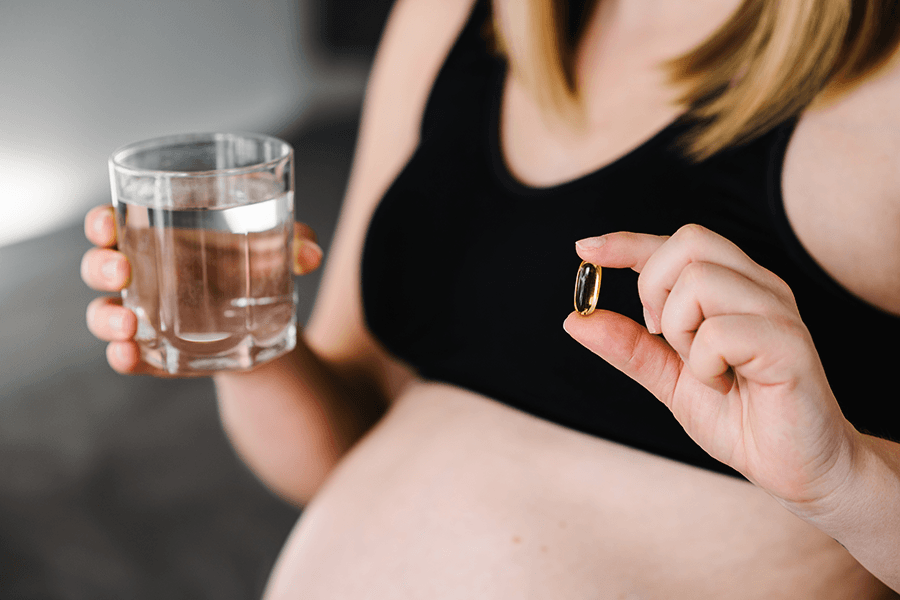The use of herbs for the treatment of discomforts and common problems arising during pregnancy and childbirth as well as breastfeeding dates back to ancient Egypt. Not all herbs and dietary supplements are safe to take during pregnancy and breastfeeding. Some can actually be harmful to you or your baby. Therefore, do not take these types of products without first consulting your healthcare provider.
Some products have been scientifically proven to be unsuitable while pregnant or breastfeeding. However, it is more common that there is a lack of data and research regarding possible side effects during pregnancy and breastfeeding.
Fetuses and newborns are more susceptible than adults
The fetus and newborn can be more sensitive than you to various substances. When it comes to herbal remedies and traditional plant-based medication, you may or may not find information in the package leaflet about whether the product should be used while you are pregnant or breastfeeding. Dietary supplements often lack this type of information because there is insufficient research and knowledge about the risks of use during pregnancy and breastfeeding. Some dietary supplements contain concentrated herbal extracts and large quantities of substances that are unsafe while pregnant or nursing. Many times, it is difficult to know if they can be harmful to the fetus or baby.
Always follow the recommended doses
There is a difference between using familiar, tried-and-tested products such as vitamins, minerals and trace substances, and more unfamiliar products. However, it is critical that you always follow the recommended doses even for familiar substances, and that you avoid overdosing.
For example, vitamin A is necessary for both mother and fetus, but high doses can be harmful. If you are expecting and take a multivitamin, for instance, check that it contains no more than 1 milligram vitamin A per daily dose.
Read the list of ingredients and only take products that list the quantity of vitamins and minerals. Remember that the combined dosage could become too high if you take several different products.
Ginseng, algae products and calabash chalk
Women who are pregnant or breastfeeding should completely avoid ginseng products since they can have an effect on estrogen levels in the body. Be careful with algae products that contain high iodine levels since overdosing can be harmful. Various products can differ greatly in terms of iodine content since they use different types of algae. Calabash chalk is used to treat nausea by pregnant women in West African countries. It can contain high levels of lead and is therefore unsuitable for women who are expecting. “La Craie”, “Argile Nzu”, “Mabele” or “Calabar stone” are common product names.
